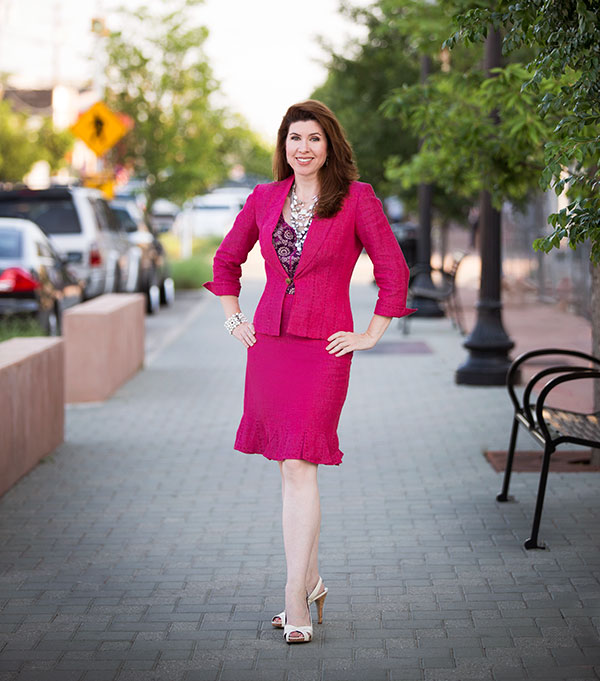What is the legacy of Dallas city councilwoman Angela Hunt? It’s a question that has semi-obsessed me ever since Hunt decided not to run for mayor and instead run for a fourth and final term. (A decision that neatly coincided with her realization that many in North Dallas replace her last name with that most British of invectives when referring to her.)
I’m fascinated by this question—and the conflicting responses to it—for several reasons, not the least of which is that I consider her a friend. I was a paid consultant during her 2011 campaign, I’ve been a guest in her home, and my daughter spent a summer as her babysitter. You don’t get more conflicted than I am, unless you’re her husband—and even that’s debatable.
But I’m also concerned with how much we expect of our City Council members in Dallas and how little power we give them to accomplish anything. (For which we have only ourselves—and the 14-1, weak-mayor system we’ve established—to blame.) So I think a clear-eyed look at Hunt’s successes and failures is instructive, if for no other reason than to do away with the misconceptions that people have about both.
To her critics, Angela Hunt was an aginner, someone whose legacy is being merely “a disruptive grandstander,” as one prominent North Dallas businessman put it to me. Hunt took stands against high-minded, big-picture developments like the Trinity River Project and the downtown Convention Center hotel. When she wasn’t the sole voice speaking out against her colleagues in council debate, she was inevitably the most vocal. Hunt played the role of Cassandra, her ears licked clean by snakes, cursed with the gift of foresight, her pleas mocked or ignored.
That Troy fell isn’t important. Relevant here is that the SAB label (strident angry bitch) is impossible to remove once affixed. “I liked her at first,” says a moderate Republican who is influential in Dallas politics. “But then it seemed like she went out of her way to pick fights, especially when it came to dealing with [former Mayor Tom] Leppert.” That Leppert was a terrible mayor who left even his supporters deeply disappointed isn’t important. Relevant: SAB!
The only designation that may be harder to shake is “loser.” “I think she will always be known for her strong independent voice,” says one sympathetic politico, “but also for losing everything she pushed for.”
Hunt does not recognize the person they are describing. Over lunch at Scalini’s Pizza & Pasta in Lakewood, she seems mystified when I tell her how disliked she is by such people. She can give me, chapter and verse, detailed counterarguments to every complaint raised against her. Example: the Convention Center hotel, which she was again.
“I opposed the public ownership aspect of the hotel, not the hotel itself,” she says. “It should have been privately owned and publicly subsidized, since the city doesn’t need to be in the hotel business, and Dallas residents don’t need to be exposed to the financial liability if it fails to make enough to repay its debt.”
Which just shows Hunt’s naivete. She thinks the fact that she’s right somehow matters. She thinks that because she worked with the city manager on the Convention Center deal to put in place a bond financing structure that included layers upon layers of taxpayer protection is relevant. She doesn’t understand that her brand is already established, as “SAB aginner.” No one cares about the details.
Or do they? In District 14, Hunt is beloved. That’s partly because Hunt’s East Dallas/downtown district is distinct—the cantankerous hippie to the rest of Dallas’ polo-and-khakis crowd. East Dallas loves having a fighter on its side, standing up to the suits, battling government waste and corporate malfeasance. (An example of this is the Hunt-led uproar over the leasing of public land to gas-drilling companies.)
It’s true that Hunt is a skilled fighter. Just ask her colleagues who thought it wise to paint her as racist during the overhaul of the sleazy municipal court system. She labeled the minority council members as cronies of the white lawyers who benefited from the previous system, which ended the attacks pretty quickly.
I saw her ruthlessness first hand. The day she asked me to help her defeat James Nowlin, the candidate who ran against her in the past election, she told me she took it personally that Nowlin was distracting her from her job. We’re not going to win, she said; we’re going to bury the son of a bitch. Which she did, beating by a 2-to-1 margin an opponent who outraised her 2-to-1.
But what Hunt naysayers don’t understand is that her vitriol is not the reason Hunt is loved in District 14. Her legacy is that of a great city councilwoman because she understands the thumbprint rule.
Here’s what I mean: why did I say “she” beat her opponent and not “we”? Because Hunt was going to win no matter what. I was a passenger on that ship, one who could only have made a difference by being dumb enough to advocate heading for the choppiest waters on the horizon. I could only put my thumbprint on the campaign if I’d screwed up.
That’s what City Council people are, most of the time—people seeking credit for steering a ship from the lido deck. Take Mary Suhm, the departing city manager. Her acolytes will have you believe that she is singularly responsible for vanquishing those who sought to destroy the monuments to her legacy: the Convention Center hotel, the Trinity River Project (and its infamous toll road), the Hunt Hill Bridge.
In truth, she was a passenger. She worked hard on those projects, but someone else would have worked hard, too. Her vision was given to her by developers who think a city’s self-worth is defined by the size of its downtown bulge. Thinking you’re central to the events of history leads to the arrogance of a city manager promising gas-drilling rights to frackers when she had no right to do so.
Hunt knows better. She is a fierce advocate for small, effective government. She realizes that the big-ticket items would have developed whether she was here or not. She fought those projects she thought were deeply flawed (the toll road, for example, which she was right about) and worked to improve them when she saw the battle was lost.
Her view of what makes a good council person focuses on fixing those things in front of her and not screwing up the good ideas that are taking shape around her. It’s why her list of regrets begins with not being able to up the wage for garbage workers. (“Those guys work so hard for next to nothing.”) It’s why instead of taking credit for the work of many—“Klyde Warren Park would have happened, whether I was there or not,” she says—she is most proud of the thumbprint projects, smaller accomplishments that would not have happened without her leadership (or obstinacy). They are defined by a progressive vision of urban living, and they have helped mend the fabric of the city.
Hunt’s list of these thumbprint projects is long and boring, as important work often is. It includes the transformation of Lower Greenville; the Trinity Trail plan; the city’s bike plan; pedestrian initiatives; the aforementioned municipal courts overhaul; putting teeth in the Neighborhood Stabilization Overlay; pushing for sensible urban design before approving new mixed-use development projects; an overhaul of the street-inventory program.
Smaller thumbprints can be found, if you look hard enough. Closing Harwood Street in Klyde Warren Park to protect pedestrians. Filtering trash from Turtle Creek. Pushing for the trail at Tietze Park. And my favorite: insisting on a median on Routh Street to keep the traffic cutting through the Arts District—and by my daughter’s former high school, Booker T. Washington—slow and single-laned where possible. It’s the sort of small, meaningful accomplishment a city councilwoman can be proud of. That’s a legacy worth celebrating.






